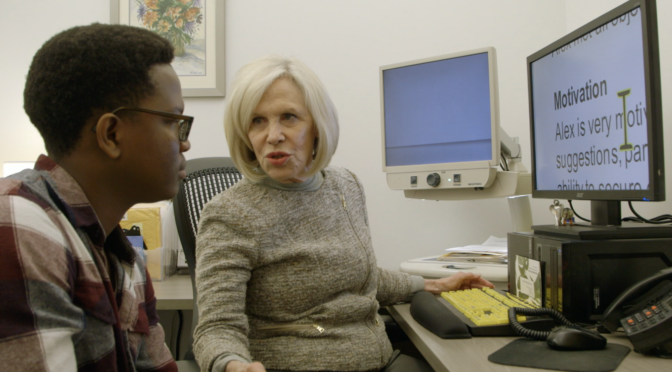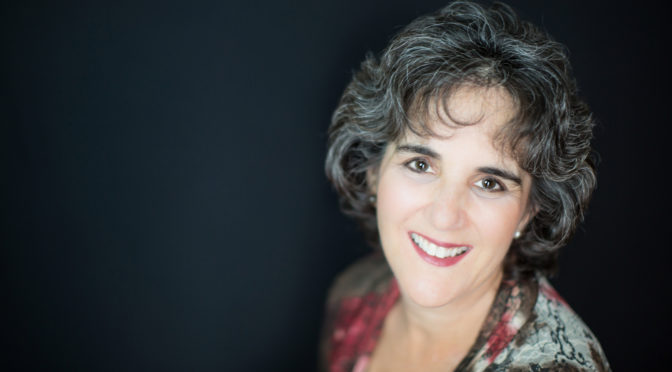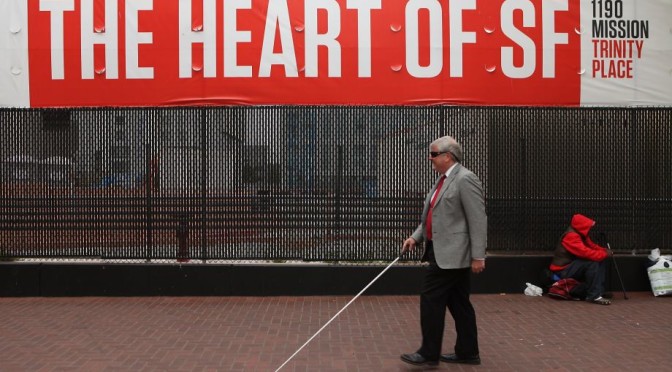Lockheed Martin, App Dynamic, Grove Collective, the San Francisco Public Library and the State of the California—what do these things all have in common?
Each of these companies and institutions hired one of our Employment Immersion Graduates within the last two weeks, representing a step towards improving employment rates in the blind and visually impaired community.
These five hires are a testament to our students’ tenacity and hard work, as well as to companies’ increasing dedication to inclusivity. The batch of prestigious hires also speaks volumes to the commitment of our Employment Immersion Program staff, who work one-on-one with students even after they complete the four-week program and liaise with employers to match them with students, and vice versa.
“We don’t care if you’re young, old, totally blind, low vision, have a college degree or no college degree,” says Employment Program Manager Kate Williams. “It doesn’t matter as long as you have a real desire to go to work. We furnish our Employment Immersion students with the tools to make sure that happens, by building their confidence and giving them the techniques to conduct a successful job search.”
In the blindness community, we know that one size does not fit all, and this is reflected in the curriculum of this four-week workshop. With a combination of short lectures, interactive activities, expert speakers and candid, honest discussions, each blind or low vision student has an opportunity to explore their interests, aptitudes, and think outside the box about which part of the job market holds the highest promise for their talents and ambitions.
Step-by-step training includes:
- Using personality indicators like Meyers Briggs and Gallup StrengthFinder to identify core strengths as a springboard to build a career
- Resume and cover letter building
- Job search techniques, networking and the hidden job market
- The application process
- Blindness disclosure and requesting accommodations
- Interview preparation including self presentation and body language
- Free professional and online portrait photographs courtesy of LightHouse for the Blind
- How to approach an interview and role playing
- Job retention
Williams, who is a Purpose Prize Winner and nationally recognized job coach by the Wall Street Journal, is the driving force behind these achievements. She knows what it takes to get blind jobseekers into positions that suit them and keep them there — and the payoff doesn’t end on payday.
“We spend a great deal of time on encouraging our attendees to connect,” says Williams. “My motto is ‘People hire people.’ We help students make connections during the job search and interview process that are genuine and show their own authenticity. We’re fostering relationship building — which is a lifelong skill.”
With an increase in referrals as LightHouse steps in as the key provider of services in the East Bay, our Employment Immersion Program is growing and evolving to meet higher standards and increasing volume of blind jobseekers. The sky’s the limit, once the skills are there.
Keep chipping away at those employment statistics and sign up for a Employment Job Preparation Workshop this fall. The workshop is open to people who are blind or have low vision, from any background, seeking any job. To sign up, contact Employment Immersion Trainer Angela Denise Davis at adavis@lighthouse-sf.org or 415-694-7353.



